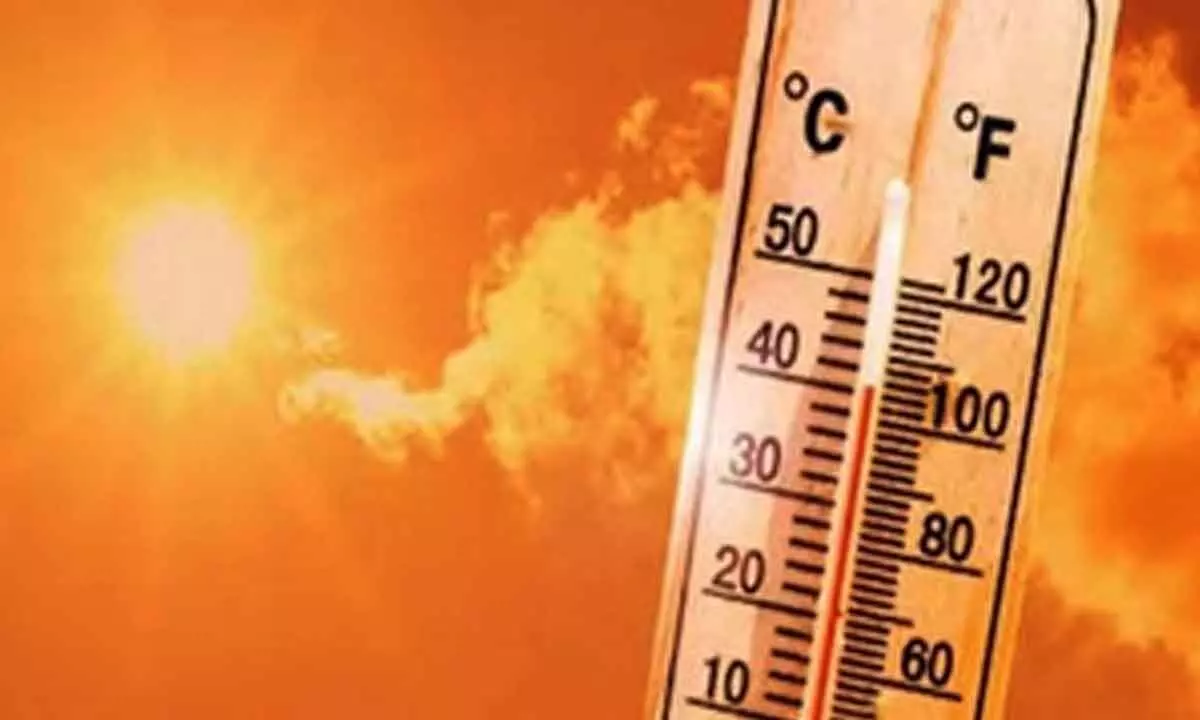Record-breaking heat wave grips western US, triggering wildfires, evacuations
Share :

A persistent heat wave is shattering temperature records across the Western United States, putting millions of people under extreme heat warnings and fueling dangerous wildfires that forced evacuations in several states.
Los Angeles : A persistent heat wave is shattering temperature records across the Western United States, putting millions of people under extreme heat warnings and fueling dangerous wildfires that forced evacuations in several states.
Nearly 75 million people, primarily in the West, are under some form of extreme heat advisory on Sunday as a powerful heat dome hovers over the region, according to the National Weather Service, which has issued excessive heat warnings stretching from Arizona and Nevada through California and northward into Oregon and Washington, reports Xinhua news agency.
On Sunday, Las Vegas, Nevada, experienced a new all-time high temperature of 48.9 degrees Celsius, surpassing its previous record by three degrees, the National Weather Service Las Vegas said in a post on social media X, formerly Twitter. The record was officially recorded at Harry Reid International Airport.
California's Death Valley, known for its extreme temperatures, reached 53.9 degrees Celsius on Sunday. The day before, a high temperature of 53.3 degrees Celsius was recorded at Death Valley National Park, where a visitor died from heat exposure and another was hospitalised for severe heat-related illness, according to a report by NBC News.
Other cities across the region also saw their record books rewritten. Palm Springs, California, reached a blistering 51.1 degrees Celsius on Friday, the hottest temperature ever recorded in the town. This surpassed the previous record of 50.6 degrees Celsius, set four times before, most recently in 2021.
The extreme temperatures are not limited to desert areas.
Sacramento, California's capital, has experienced temperatures over 40.6 degrees Celsius for three consecutive days, while inland areas of Monterey County, typically cooled by the nearby Pacific Ocean, have seen temperatures soar well over 43.3 degrees Celsius.
The extreme heat was fueled by a strong ridge of high pressure parked over Central California. This weather pattern prevents hot air near the surface from rising higher in the atmosphere, effectively trapping the heat and creating a "heat dome" effect.
As the region swelters, the risk of wildfires has dramatically increased. Officials across Western states warned that the combination of extreme heat and winds had spawned many new wildfires in the past week.
One significant blaze, the French Fire in Mariposa County, California, began on Thursday near Yosemite National Park. By Sunday night, it had burned through 908 acres (3.67 square kilometers) and was 55 per cent contained, according to the California Department of Forestry and Fire Protection.
In California's Santa Barbara County, firefighters are battling the Lake Fire, which exploded over the weekend to more than 13,000 acres. As of Sunday morning, it was only 8 per cent contained. The blaze is threatening homes in the area, including Michael Jackson's former Neverland Ranch.
Further north, crews are combating the Royal Fire, which burned in the Tahoe National Forest Sunday night. Forest service officials have reported that the fire was located in remote and rugged terrain, presenting significant challenges for firefighting operations.
The heat wave and associated wildfires have prompted evacuations in multiple counties across California, including Santa Barbara, Placer, Tuolumne, Mariposa, Fresno and Butte counties.
As the heat wave continues, authorities are continuing to urge residents to take precautions. These include staying adequately hydrated, minimising outdoor activities during the hottest times of the day, and never leaving children or pets unattended in vehicles.
Climate experts warned that extreme heat events are expected to increase in frequency and intensity due to climate change.













